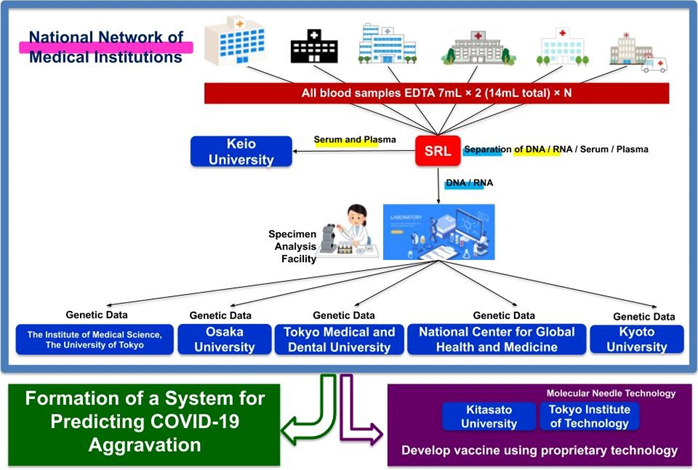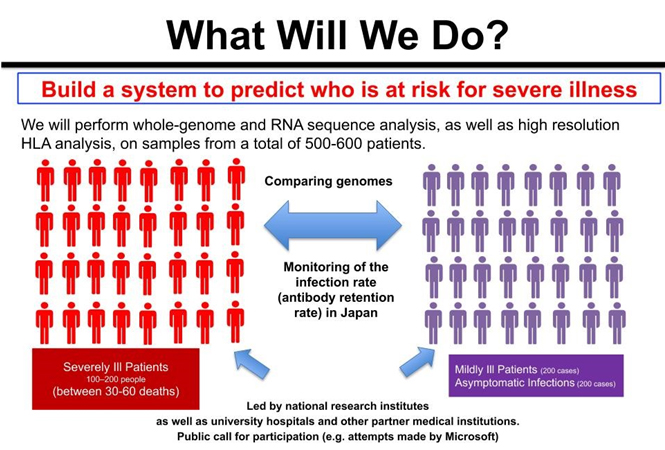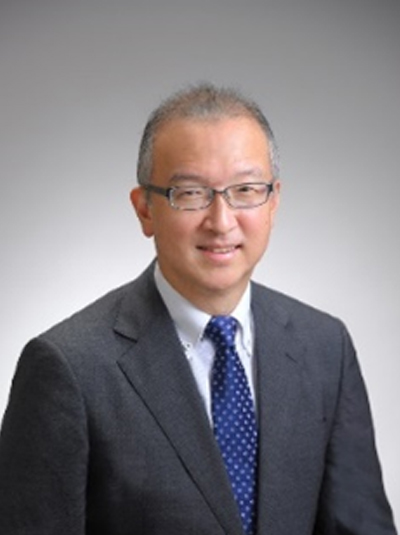Japanese researchers have launched the Joint Research Coronavirus Task Force to gather genetic information for predicting severe cases of COVID-19 and developing effective vaccines.

National Network of Medical Institutions © Keio University
On 21 May, 2020, the Joint Research Coronavirus Task Force was launched in Japan to promote the development of a mucosal vaccine for COVID-19 based on advanced genomic analysis.
"We will analyze 600 blood samples taken from Japanese COVID-19 patients located in approximately 100 hospitals throughout Japan," explains Takanori Kanai of the Keio University School of Medicine, who leads the task force. "One of the goals of the research is to try to understand why the mortality rate due to COVID-19 has remained significantly lower in Japan than the United States and European countries. We think it may be related to genetic differences. We want to resolve this issue and share our results with our colleagues around the world."
Background and goals
This research is being undertaken by experts affiliated with Keio University, Tokyo Medical and Dental University, Osaka University, the Institute of Medical Science at the University of Tokyo, the National Center for Global Health and Medicine, the Tokyo Institute of Technology, Kitasato University, and Kyoto University.
"Our research team includes specialists in infectious diseases as well as other fields such as molecular genetics, computational science, and gastroenterology, which is my area of expertise, and is not directly related to epidemiology or infectious diseases," says Kanai. "This project was conceived by a small group of medical doctors and researchers without experience of handling infectious diseases. But the actual project is interdisciplinary, with members including ICU and medical care staff at university hospitals, community healthcare practitioners, immunologists, and even members of the general public. Ultimately, we want to contribute to society through medicine and science."
Working hypotheses for possible reasons for fewer COVID-19 deaths in Japan and Asia
The members of the task force compiled the following list of potential reasons for the low mortality rate in Japan: Japan's world-class medical system; a history of regular face mask use and attention to hygiene (including hand washing) in daily life; a culture of avoiding physical contact akin to social distancing; low expression of virus receptors; BCG vaccination; and differences in immune response due to differences in racial HLA and other polymorphisms.
Gathering samples and genetic information
The task force's goals are to establish a medical response system to predict who is at risk of contracting severe COVID-19 and develop a vaccine using proprietary technology. Genomic analysis technology is being employed to elucidate the genetic basis of the mechanisms that trigger COVID-19 infections to worsen, and thereby develop methods to fight the disease and develop a mucosal vaccine.

Gene Polymorphism Analysis © Keio University
The team is focusing on the fact that the number of COVID-19 deaths per capita is far smaller in the Japanese population than it is in Western countries. The 600 blood samples are being studied by methods including high-resolution HLA analysis, SNP array and whole-genome sequence analysis, and T-cell repertoire analysis.
"Our analysis is being used to compare severe cases with mild and asymptomatic cases to identify genes that may be responsible for the exacerbation of COVID-19 in Japanese patients," explains Kanai. "Regarding vaccine development, predicting the target epitope is a major challenge. We are planning to use supercomputer simulations to identify potential antigens for SARS-CoV-2 based on our results for determining the genes that lead to severe cases of COVID-19 in Japanese patients."
Initial findings will be announced in September 2020
The task force plans to announce the initial findings of their research in September 2020. This will include the identities of the genes associated with triggering severe cases of COVID-19 among Japanese people that could be used to predict potential severity during early diagnostics.
"We want to use our results to produce guidelines to mitigate the dangers of overloading the medical care system during potential second or possibly third waves of COVID-19," says Kanai. "Furthermore, our immunological genetic information will be valuable for designing potential vaccines for SARS-CoV-2 for many Japanese people. We will share our results with colleagues in other countries so that they can use them to develop strategies to combat COVID-19 for their own populations."
Published online 28 September 2020
About the researcher

Takanori Kanai ― Professor
Department of Gastroenterology and Hepatology (Japanese language only)School of Medicine
Takanori Kanai graduated from the Keio University School of Medicine in 1988. Between 1989 and 2003 he held teaching positions at the Keio University School of Medicine, Keio Cancer Center, and Tokyo Medical and Dental University (TMDU). He has also held distinguished positions including as a committee member of the Harvard Medical Institute Educational Program at TMDU; Section Editor of the journal Inflammatory Bowel Diseases; Associate Editor of Journal of Gastroenterology; Editorial Board Member, American Journal of Physiology and Gastrointestinal and Liver Physiology; and Clinical Professor of Medicine (Visiting), TMDU. At the Keio University School of Medicine, he was appointed as an associate professor in 2007 and a professor in 2013, and he has been serving as a vice dean since 2017.